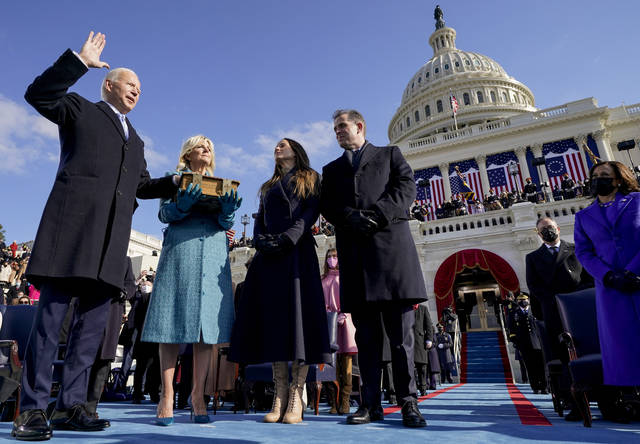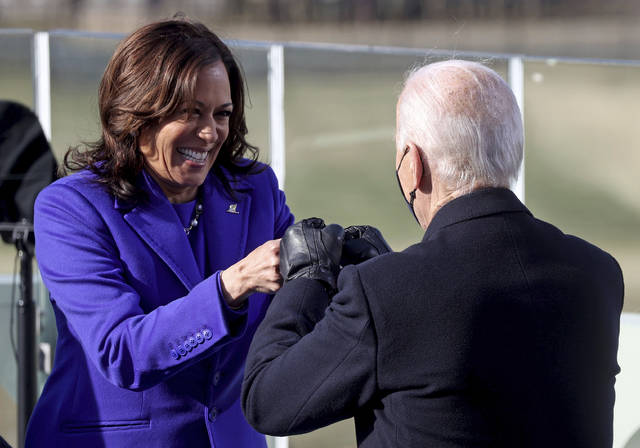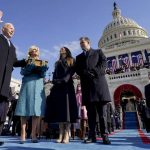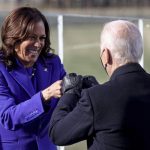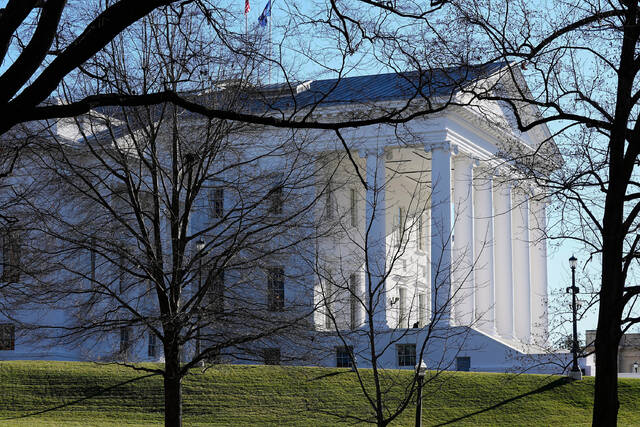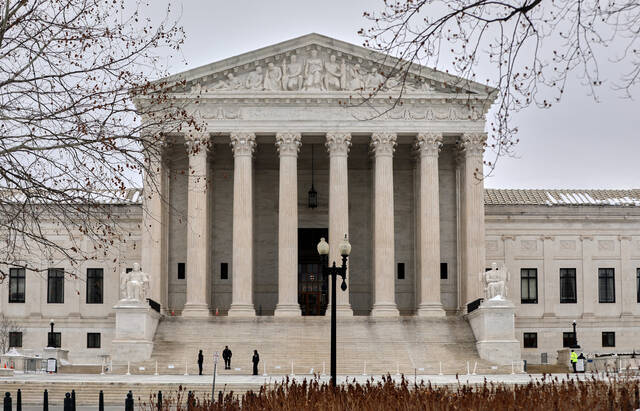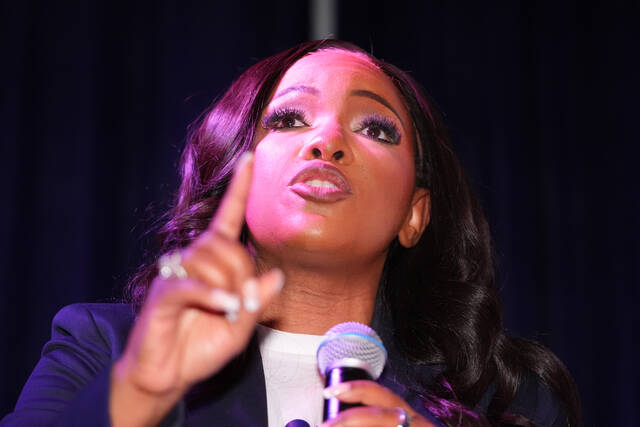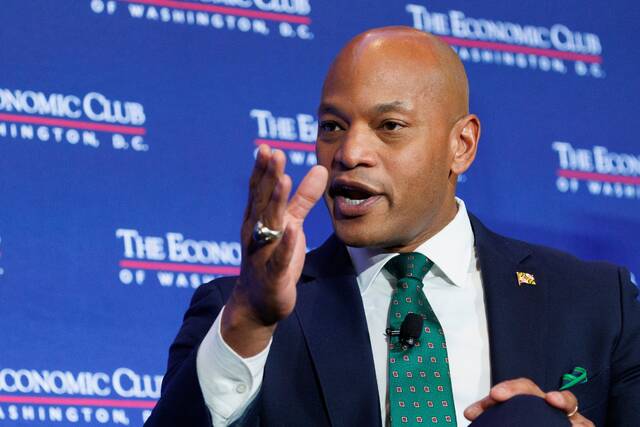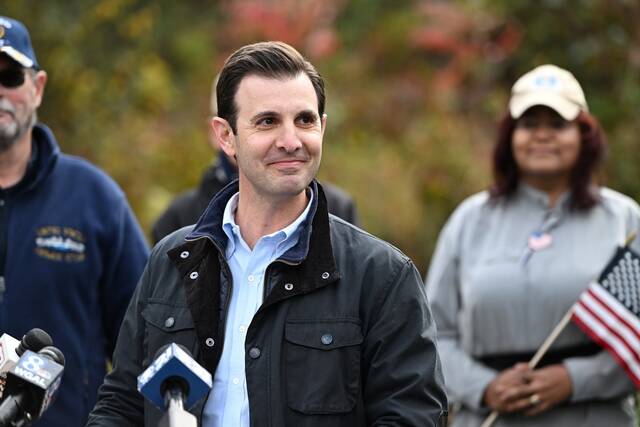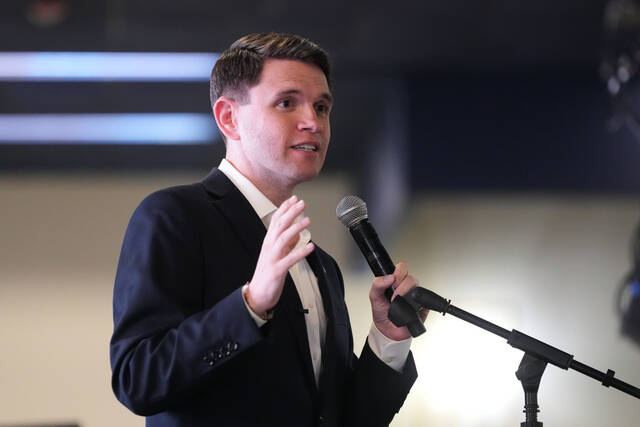WASHINGTON — Joe Biden became the 46th president of the United States on Wednesday, declaring that “democracy has prevailed” as he took the helm of a deeply divided nation and inherited a confluence of crises arguably greater than any faced by his predecessors.
“The will of the people has been heard, and the will of the people has been heeded. We’ve learned again that democracy is precious and democracy is fragile. At this hour, my friends, democracy has prevailed,” Biden said. “This is America’s day. This is democracy’s day. A day in history and hope, of renewal and resolve.”
Biden’s inauguration came at a time of national tumult and uncertainty, a ceremony of resilience as the hallowed American democratic rite unfurled at a U.S. Capitol battered by an insurrectionist siege just two weeks ago. The chilly Washington morning was dotted with snow flurries, but the sun emerged just before Biden took the oath of office, the quadrennial ceremony persevering even though it was encircled by security forces evocative of a war zone and devoid of crowds because of the coronavirus pandemic.
RELATED CONTENT
• On Day One, Biden to undo Trump policies on climate, virus
• Kamala Harris sworn in as vice president, breaking gender and racial barriers in American politics
• Trump leaves White House, says ‘It’s been a great honor’
In his first speech as president, he pivoted to challenges ahead, acknowledging the surging virus that has claimed more than 400,000 lives in the United States. Biden looked out over a capital city dotted with empty storefronts that attest to the pandemic’s deep economic toll and where summer protests laid bare the nation’s renewed reckoning on racial injustice.
“We have much to do in this winter of peril, and significant possibilities: much to repair, much to restore, much to heal, much to build and much to gain,” Biden said. “Few people in our nation’s history have more challenged, or found a time more challenging or difficult than the time we’re in now.”
His predecessor’s absence underscored the healing that is needed.
Flouting tradition, Donald Trump departed Washington on Wednesday morning ahead of the inauguration rather than accompany his successor to the Capitol. Though three other former presidents — Bill Clinton, George W. Bush and Barack Obama — gathered to watch the ceremonial transfer of power, Trump, awaiting his second impeachment trial, instead flew to Florida after stoking grievance among his supporters with the lie that Biden’s win was illegitimate.
Biden, in his third run for the presidency, staked his candidacy less on any distinctive political ideology than on galvanizing a broad coalition of voters around the notion that Trump posed an existential threat to American democracy. Biden did not mention Trump by name in the early moments of his inaugural address but alluded to the rifts his predecessor had helped create.
“I know the forces that divide us are deep and they are real. But I also know they are not new. Our history has been a constant struggle between the American ideal that we all are created equal and the harsh, ugly reality of racism, nativism, fear, demonization that have long torn us apart,” Biden said. “This is our historic moment of crisis and challenge, and unity is the path forward and we must meet this moment as the United States of America.”
Biden came to office with a well of empathy and resolve born by personal tragedy as well as a depth of experience forged from more than four decades in Washington. At age 78, he was the oldest president inaugurated.
More history was made at his side, as Kamala Harris became the first woman to be vice president. The former U.S. senator from California is also the first Black person and the first person of South Asian descent elected to the vice presidency and will become the highest-ranking woman ever to serve in government.
The two were sworn in during an inauguration ceremony with few parallels in history.
Tens of thousands of troops are on the streets to provide security precisely two weeks after a violent mob of Trump supporters, incited by the Republican president, stormed the Capitol in an attempt to prevent the certification of Biden’s victory.
“Here we stand, just days after a riotous mob thought they could use violence to silence the will of the people,” Biden said. “To stop the work of our democracy. To drive us from this sacred ground. It did not happen. It will never happen. Not today, not tomorrow. Not ever. Not ever.”
The tense atmosphere evoked the 1861 inauguration of Lincoln, who was secretly transported to Washington to avoid assassins on the eve of the Civil War, or Roosevelt’s inaugural in 1945, when he opted for a small, secure ceremony at the White House in the waning months of World War II.
The day began with a reach across the aisle after four years of bitter partisan battles under Trump. At Biden’s invitation, congressional leaders from both parties bowed their heads in prayer in the socially distanced service just a few blocks from the White House.
Chief Justice John Roberts administered the oath to Biden, while Harris was sworn in by Justice Sonia Sotomayor, the first Latina member of the Supreme Court. Vice President Mike Pence, standing in for Trump, was sitting nearby as Lady Gaga, holding a gold microphone, sang the national anthem accompanied by the U.S. Marine Corps band.
Biden was eager to go big early, with an ambitious first 100 days that includes a push to speed up the distribution of covid-19 vaccinations to anxious Americans and pass a $1.9 trillion virus relief package. On Day One, he’ll also send an immigration proposal to Capitol Hill that would create an eight-year path to citizenship for immigrants living in the country illegally.
He also planned a 10-day blitz of executive orders on matters that don’t require congressional approval — a mix of substantive and symbolic steps to unwind the Trump years. Among the planned steps: rescinding travel restrictions on people from several predominantly Muslim countries; rejoining the Paris climate accord; issuing a mask mandate for those on federal property; and ordering agencies to figure out how to reunite children separated from their families after crossing the border.


